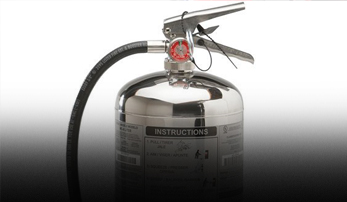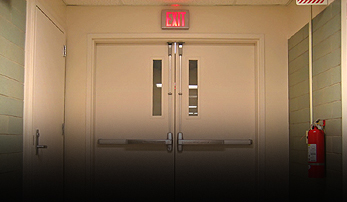Beyond the Headlines Stay Informed with Breaking World & Local Updates.
- Beyond the Headlines: Stay Informed with Breaking World & Local Updates.
- The Evolution of Information Dissemination
- The Importance of Verified Sources
- Combating Misinformation and Disinformation
- Tools and Resources for Staying Informed
Beyond the Headlines: Stay Informed with Breaking World & Local Updates.
In today’s rapidly evolving world, staying informed is more critical than ever. Access to current events, both globally and locally, empowers individuals to make informed decisions, participate meaningfully in civic life, and understand the complex forces shaping our society. The proliferation of digital platforms has transformed how we receive this information, with a constant stream of updates available at our fingertips. Understanding the methods for discerning reliable sources and critically evaluating information is paramount. This overview delves into the importance of staying up-to-date, the challenges presented by the modern information landscape, and practical strategies for navigating the flow of information effectively. The importance of receiving timely information cannot be overstated.
The sheer volume of readily available updates can be overwhelming, news leading to “information fatigue” and a sense of detachment. It’s crucial to find reliable sources and cultivate a mindful approach to consuming current reports. This includes recognizing the difference between objective reporting and opinion-based commentary, verifying information through multiple sources, and being aware of potential biases. Effective engagement with current events isn’t simply about consuming; it’s about understanding, analyzing, and responding thoughtfully.
The Evolution of Information Dissemination
Traditionally, the dissemination of updates relied heavily on established media outlets – newspapers, radio, and television. These entities often served as gatekeepers, carefully curating and verifying reports before they reached the public. However, the advent of the internet and social media has disrupted this model, creating a far more decentralized and democratized landscape. While this has empowered citizen journalists and allowed for a wider range of voices to be heard, it has also introduced new challenges related to accuracy and credibility. The rise of social media has greatly changed the way people stay up to date.
Social media platforms, while offering immediacy and convenience, are often susceptible to the spread of misinformation, “fake news,” and propaganda. Algorithms prioritize engagement, potentially amplifying sensational or emotionally charged content, regardless of its factual basis. This creates echo chambers where individuals are primarily exposed to information that confirms their existing beliefs, reinforcing biases and hindering critical thinking. Therefore, media literacy is now a vital skill, empowering individuals to navigate this complex digital terrain.
The increasing reliance on algorithms and personalized feeds also raises concerns about filter bubbles. Users are often presented with a tailored stream of information based on their past online behavior, potentially limiting their exposure to diverse perspectives. This can lead to a distorted understanding of reality and make it harder to engage in constructive dialogue with those holding different viewpoints. Navigating these challenges requires a conscious effort to seek out multiple sources of information and actively challenge one’s own assumptions.
| Limited Sources | Numerous Sources |
| Gatekeepers & Verification | Decentralized & Citizen Journalism |
| Scheduled Broadcasts | Instant Updates |
| Broad Audience | Targeted & Personalized Content |
The Importance of Verified Sources
In an era of information overload, identifying and relying on verified sources is paramount. Established news organizations with a reputation for journalistic integrity maintain strict editorial standards, employing fact-checkers and adhering to ethical guidelines. While these sources are not immune to errors, they generally strive for accuracy and offer a more balanced and nuanced picture of events. Seeking out reputable news agencies is a crucial first step in sifting through the noise. Investigating the background and motivations of any source is also very important
Beyond established media, academic research, government reports, and organizations dedicated to fact-checking can provide valuable insights. Non-partisan organizations such as Snopes and PolitiFact are dedicated to debunking misinformation and providing evidence-based analysis. It’s essential to critically evaluate the methodology employed by these sources and be aware of potential biases. Being able to read materials with a critical lens is incredibly helpful.
However, even verified sources can be subject to limitations. Editorial decisions inevitably involve choices about what stories to prioritize and how to frame them. Therefore, it’s wise to consult multiple sources offering different perspectives on the same event. Comparing and contrasting reports from various outlets can help uncover hidden biases and provide a more comprehensive understanding of the situation. This is how critical thinking can bring the best accurate results.
- Fact-Checkers: Organizations like Snopes and PolitiFact.
- Reputable News Agencies: Associated Press, Reuters, BBC, New York Times.
- Government Reports: Official government publications and data.
- Academic Research: Peer-reviewed studies and scholarly articles.
Combating Misinformation and Disinformation
The distinction between misinformation and disinformation is often subtle but significant. Misinformation refers to inaccurate information that is spread unintentionally, while disinformation is deliberately fabricated or manipulated to deceive. Both pose serious threats to public understanding and democratic discourse. Understanding this difference is essential when assessing the information landscape. It’s difficult to stay informed when so much is inherently inaccurate.
Combating misinformation requires a multi-faceted approach. It involves not only verifying information before sharing it, but also educating others about the dangers of online falsehoods. Social media platforms have a responsibility to address the spread of disinformation on their networks, but individuals also have a role to play in promoting media literacy and critical thinking skills. Encouraging open dialogue and respectful debate is crucial for fostering a more informed and engaged citizenry.
| Inaccurate, Unintentional | False, Intentional |
| Often Due to Errors | Designed to Deceive |
| Lack of Malice | Malicious Intent |
| Example: Sharing a Rumor | Example: Spreading Fake News for Political Gain |
Tools and Resources for Staying Informed
Numerous tools and resources are available to help individuals stay informed. News aggregators, such as Google News and Apple News, gather reports from a variety of sources, allowing users to customize their feeds based on their interests. However, it’s important to be aware that these aggregators often rely on algorithms that can reinforce filter bubbles. They can be useful, but also limiting. The responsibility falls on the user to broaden their scope.
Subscription services, offering in-depth reporting and analysis, can provide a more comprehensive understanding of complex issues. Podcasts and newsletters can also deliver curated information directly to your inbox. Fact-checking websites and browser extensions can help verify the accuracy of information encountered online. Combining a variety of resources and employing critical thinking skills is the most effective way to remain well-informed. Critical reading skills lead to better informed citizens.
- Google News/Apple News (News Aggregators)
- Fact-Checking Websites (Snopes, PolitiFact)
- Subscription-Based News Services
- Newsletters & Podcasts
- Browser Extensions for Fact-Checking
| Google News | Aggregates news from various sources, customizable feeds. |
| Snopes | Fact-checking website, debunks rumors and misinformation. |
| New York Times | Subscription-based, in-depth reporting and analysis. |
| The Economist | Subscription-based, global perspective on current events. |
Ultimately, maintaining an informed citizenry is essential for a healthy democracy. By cultivating critical thinking skills, seeking out verified sources, and remaining vigilant against misinformation and disinformation, individuals can play a vital role in shaping a more informed and engaged society. Navigating the modern information landscape requires effort, but the rewards – a deeper understanding of the world around us and the ability to make informed decisions – are well worth the investment.









Recent Comments